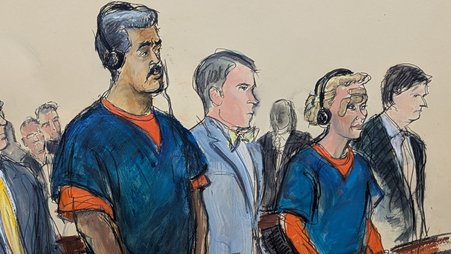We’ve spent the week warning that Julian Assange’s guilty plea — although better than an adverse court ruling — dangerously legitimizes the idea that the government can convict journalists under the Espionage Act for publishing its secrets.
It’s something past administrations have dreamed of doing, but chickened out because it would have been unprecedented. It’s not anymore, just in time for a potential second Trump term, during which he’d love nothing more than to throw journalists in jail.
It turns out the government had already proven our point even before Assange’s plea agreement became public. Voice of America reported last week that the Department of Defense opposes reforming rules that bar journalists at the military newspaper Stars and Stripes from publishing classified information, even when it has already been reported elsewhere.
A Defense Department spokesperson told VOA that journalists who are government employees must “adhere to applicable DoD policies and federal laws and regulations, such as those regarding legal and ethical standards of federal employees and unauthorized disclosure of classified information.”
Stars and Stripes receives funding from the Defense Department but its editorial independence is guaranteed by Congress (at least on paper, and hopefully in practice).
Turns out, when the government is given the power to tie journalists’ hands it inevitably will.
Presumably, the federal law the Defense Department spokesperson was referencing is the Espionage Act — the century-old law Assange pleaded guilty to violating, which prohibits unauthorized possession and publication of national defense documents.
For years, press freedom advocates have warned that the Espionage Act can’t be used against publishers under the First Amendment. Under the legal theory the government employed to prosecute Assange, it’s illegal for national security journalists at The New York Times and The Washington Post to obtain government secrets from sources and print them in the newspaper.
Not to worry, our opponents have assured us. Assange isn’t like other journalists. He didn’t redact names from the documents he published. He didn’t contextualize them. He violated journalistic norms and ethical standards. His prosecution is a one-off case arising from extraordinary circumstances. No one would come after “real” journalists doing their job.
Well, then Stars and Stripes reporters must not be real journalists either, because it sure sounds like it’s the Defense Department’s position that the Espionage Act is every bit as applicable to them as it is to Assange. Turns out, when the government is given the power to tie journalists’ hands — for example, when it employs them — it inevitably will.
On the one hand, the government can’t assure us it won’t apply the Espionage Act to conventional journalists because it has, with Stars and Stripes. On the other, the government can’t claim it won’t apply the Espionage Act to publishers it doesn’t employ, because it never employed Assange. He isn’t even American.
That’s alarming — and maybe it answers the question of why the government felt compelled to extract a guilty plea from Assange rather than just dropping the case: The plea effectively legitimizes Espionage Act prosecutions of publishers. The government may not intend to indict New York Times reporters now — but it wants to preserve the right to do so if it becomes convenient, and leave it to the courts to sort out the constitutional problems.
We can think of at least one presidential hopeful who surely appreciates that flexibility.





